-
Global water supply under increasing pressure
A new study projects that global demand for water could more than double by 2050, increasing pressure on already scarce water resources. “Our current water use habits increase the risk of being unable to maintain sustainable food production and economic development for the future generation,” says one researcher. Water efficiency and water saving measures could stabilize demand.
-
-
Breakthrough in continuous monitoring of CO2 leaks from carbon storage sites
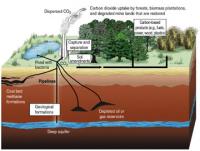
Underground storage of CO2 produced from fossil fuel burning, rather than releasing it into the atmosphere, could play an important role in suppressing climate change. Ensuring that the CO2 does not leak from the storage site is key – but the high number of surveys necessary to make sure there is no CO2 leak makes this a costly endeavor. A team of Japanese researchers may have found a means of achieving easier and lower-cost monitoring for leaks of CO2 stored in underground reservoirs.
-
-
Northeast braces for “snowpocalypse”
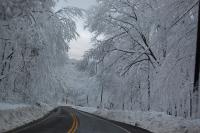
Around seventy-five million Americans are preparing for potentially life-threatening blizzard conditions as the season’s first major Atlantic Coast storm is about to sweep across the East Coast. Forecasters say the storm taking aim at Washington could rank among the biggest snowfalls on record, eclipsing the “Snowmageddon” storm of 2010 that dropped 45.2 cm. At least five states have declared emergencies as the potentially historic blizzard, which is expected to begin today (Friday), will likely dump up to 75 cm of snow in some regions.
-
-
Warmer oceans could produce more powerful, destructive superstorms
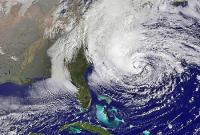
Hurricane Sandy became the second costliest hurricane to hit the United States when it blew ashore in October 2012, killing 159 people and inflicting $71 billion in damage. Informally known as a “superstorm” after it made landfall, Sandy was so destructive largely because of its unusual size and track. After moving north from the tropical waters where it spawned, Sandy turned out to sea before hooking back west, growing in size and crashing head-on into the East Coast, gaining strength when it merged with an eastbound mid-latitude storm. A new study led by the University of Maryland’s Earth System Science Interdisciplinary Center (ESSIC) suggests that a warmer Atlantic Ocean could substantially boost the destructive power of a future superstorm like Sandy.
-
-
Global ocean warming has doubled in recent decades
Changes in ocean heat storage are important because the ocean absorbs more than 90 percent of the Earth’s excess heat increase associated with global warming. Lawrence Livermore (LLNL) scientists, working with National Oceanic and Atmospheric Administration (NOAA) and university colleagues, have found that half of the global ocean heat content increase since 1865 has occurred over the past two decades. The observed ocean and atmosphere warming is a result of continuing greenhouse gas emissions.
-
-
Dead ETs: Aliens are silent because they are all extinct

Life on other planets would likely be brief and become extinct very quickly, say astrobiologists. In research aiming to understand how life might develop, the scientists realized new life would commonly die out due to runaway heating or cooling on their fledgling planets.
-
-
As climate warms, Colorado high peaks lose glaciers

Melting of ice on Niwot Ridge and the adjacent Green Lakes Valley in the high mountains west of Boulder, Colorado, is likely to progress as climate continues to warm, scientists have found. Their study reveals declines in ice — glaciers, permafrost, subsurface ice, lake ice — in the Niwot Ridge area over the past thirty years. For glaciers like Arikaree, the time left may be counted in years, not centuries nor millennia, says one expert.
-
-
Earth’s 2015 surface temperatures the warmest since record keeping began in 1880
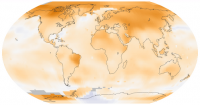
Earth’s 2015 surface temperatures were the warmest since modern record keeping began in 1880, according to independent analyses by NASA and the National Oceanic and Atmospheric Administration (NOAA). The 2015 temperatures continue a long-term warming trend, according to analyses by scientists at NASA’s Goddard Institute for Space Studies (GISS) in New York (GISTEMP). Most of the warming occurred in the past thirty years, with 15 of the 16 warmest years on record occurring since 2001. “Climate change is the challenge of our generation, and NASA’s vital work on this important issue affects every person on Earth,” said NASA administrator Charles Bolden.
-
-
New plant growth technology may alleviate climate change, food shortage
A research team has developed a new strategy to promote plant growth and seed yield by 38 percent to 57 percent in a model plant Arabidopsis thaliana, hence increasing CO2 absorption from the atmosphere. This technology may also have potential in boosting food production and thus could solve another danger of human civilization: food shortage due to overpopulation.
-
-
Coming El Nino could replenish Calif.’s aquifers – or ravage vulnerable infrastructure
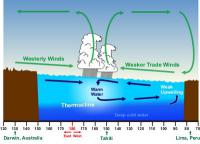
When respected climatologists describe this winter’s warming of tropical Pacific waters as a Godzilla El Nino event, they might be onto something. The science fiction monster’s signature move is to emerge from the ocean and destroy structures built by hapless humans. Many of the necessary plot elements are in place for El Nino to similarly wreak havoc in the Golden State in the coming months, says an expert.
-
-
Humanity has become a geological force: Scientists

Humanity has become a geological force which is able to suppress the beginning of the next ice age, a study now published in the renowned scientific journal Nature shows. “Like no other force on the planet, ice ages have shaped the global environment and thereby determined the development of human civilization. For instance, we owe our fertile soil to the last ice age that also carved out today’s landscapes, leaving glaciers and rivers behind, forming fjords, moraines and lakes. However, today it is humankind with its emissions from burning fossil fuels that determines the future development of the planet,” says one expert.
-
-
Freshwater vulnerability threatens developing nations' stability
Many nations and regions already facing uncertain political futures must contend with a growing threat to stabilization: freshwater vulnerability. An analysis of 119 low-income countries finds common challenges that could inform broad solutions.
-
-
Carbon in water must be accounted for in future climate projections
U.S. Geological Survey (USGS) scientists have documented that the carbon that moves through or accumulates in lakes, rivers, and streams has not been adequately incorporated into current models of carbon cycling used to track and project climate change.
-
-
Global learning required to prevent carbon capture, storage from being abandoned
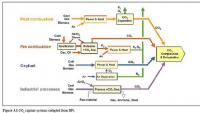
Governments should not be abandoning carbon capture and storage, argues a Cambridge researcher, as it is the only realistic way of dramatically reducing carbon emissions. Instead, they should be investing in global approaches to learn what works – and what doesn’t.
-
-
The impact of rising sea levels on Rhode Island
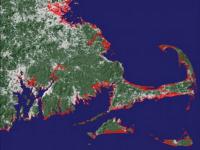
Climate change will bring profound changes to Rhode Island’s coastal communities in the coming decades. Scientists project sea levels to rise 3 to 5 feet in the state by 2100, and recent government projections are as high as 7 feet. Now, University of Rhode Island students are studying one community that could be hit especially hard: Matunuck. The year-long analysis by eight senior ocean engineering students is so thorough that flooding projections were made for specific structures —709 to be exact. Those home and business owners will be able to find out what could happen to their buildings during a powerful storm with rising sea levels up to five feet.
-
- All
- Regional
- Water
- Biometrics
- Borders/Immig
- Business
- Cybersecurity
- Detection
- Disasters
- Government
- Infrastructure
- International
- Public health
- Public Safety
- Communication interoperabillity
- Emergency services
- Emergency medical services
- Fire
- First response
- IEDs
- Law Enforcement
- Law Enforcement Technology
- Military technology
- Nonlethal weapons
- Nuclear weapons
- Personal protection equipment
- Police
- Notification /alert systems
- Situational awareness
- Weapons systems
- Sci-Tech
- Sector Reports
- Surveillance
- Transportation
Advertising & Marketing: advertise@newswirepubs.com
Editorial: editor@newswirepubs.com
General: info@newswirepubs.com
2010-2011 © News Wire Publications, LLC News Wire Publications, LLC
220 Old Country Road | Suite 200 | Mineola | New York | 11501
Permissions and Policies
Editorial: editor@newswirepubs.com
General: info@newswirepubs.com
2010-2011 © News Wire Publications, LLC News Wire Publications, LLC
220 Old Country Road | Suite 200 | Mineola | New York | 11501
Permissions and Policies
